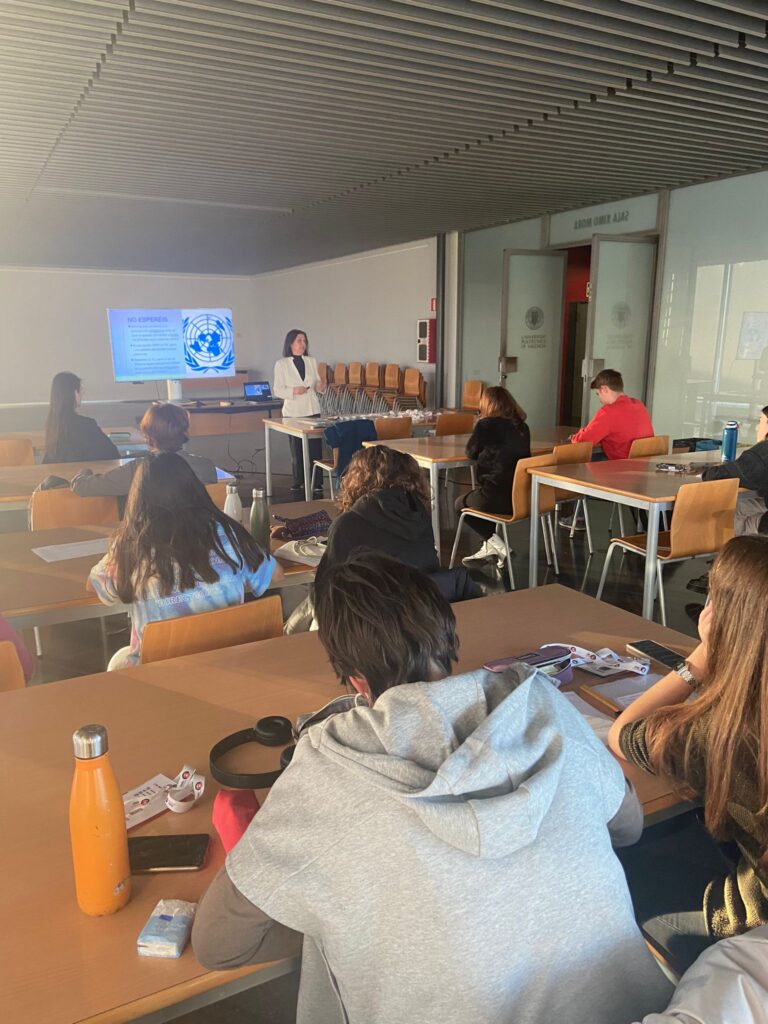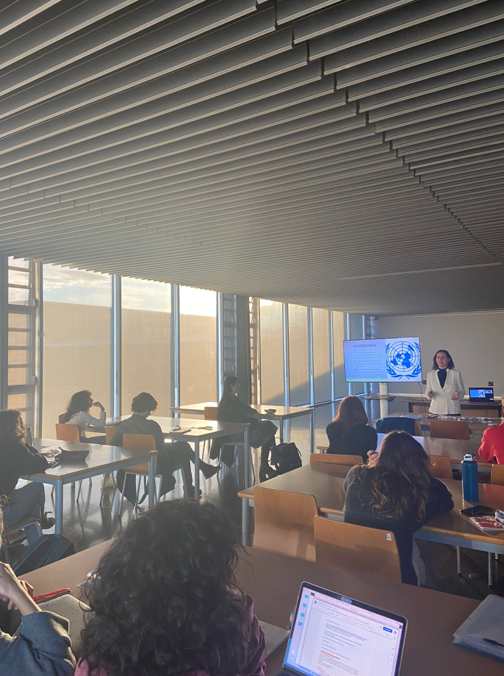Susana Sanz Caballero has been invited by the Helsinki-España Association to give a talk on Human Rights at the Polytechnic University of Valencia
“Jóvenes formando a Jóvenes” (“Young people training young people”) is the name of the training program organized by the Helsinki-España Association at the Polytechnic University of Valencia with the sponsorship of the Ministry of Social Affairs.
Our colleague Susana Sanz, Jean Monnet Chair and Professor of International Public Law at CEU Cardenal Herrera University has participated in this program, teaching a module on international and European mechanisms for the protection and defense of Human Rights.
Training in Human Rights and in the mechanisms that exist to protect them is essential for new generations. This work is important for them to learn about the mechanisms and systems that exist and also for them to evaluate the little or much that previous generations have achieved so far. Knowing them is the first step to inform about them, to be able to use them when necessary, and also to try to improve them.
For this task, senior generations must pass the baton to the next ones. But how can we train young people so that they, in turn, can train children in Human Rights? Training young people so that they can train children in Human Rights is the idea that this Association has been developing with great success.
The idea is simple: psychologists, social workers, teachers, activists, criminologists and lawyers train thirty university students for a week in the subjects in which they are experts (gender violence, tools for equality, mental health, sustainable development goals, homelessness) so that they can then go to schools to train children in these subjects using specific methodologies for children.


Dr. Sanz has insisted that there is no world court of Human Rights and that the European Court of Human Rights, with all the defects that can be attributed to it, is the best result and the greatest compromise that has been reached, having become a model of inspiration for other regional systems for the protection of Human Rights, such as the Inter-American or African systems.
She has focused on explaining which mechanisms exist for the protection of Human Rights at a universal level, within the framework of the United Nations, and which exist at the European regional level, with special emphasis on how any person, of any age or nationality, can file a claim before the European Court of Human Rights provided that they meet the admissibility requirements established by the European Convention on Human Rights.
Finally, the speaker has indicated that if it has not been possible to go further in terms of international protection of Human Rights, it is because there has not been greater commitment among the States, which is why she has encouraged the participants to encourage the new generations to fight to improve the existing systems for the protection of Human Rights and the Rule of Law, such as the universal and European systems.


